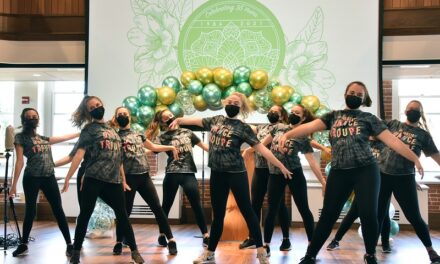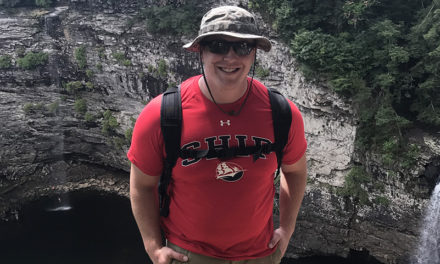Shippensburg University (SU) received a $25,000 community improvement grant from the GIANT Company and Keep Pennsylvania Beautiful to launch a student-led composting project called ShipComposts. The university was one of only 42 applicants from across the state selected to receive funding.
The ShipComposts project concept was created by members of Enactus, a student organization focused on improving the world through entrepreneurship. Their idea led to a partnership with the Center for Landuse and Sustainability (CLUS), SU Campus Farm and Shippensburg Produce and Outreach. The initiative will help bridge issues related to food waste, food insecurity and soil health. Between 2015 and 2019, SU produced more than 1,100 tons of organic food waste: approximately 22 tons of waster per month.
“Food waste is a growing issue across the United States, and it’ll take incremental steps from people all over the country to limit the impacts of this waste. By responsibly composting Ship’s food waste, we can alleviate the campus’ greenhouse gas emissions,” explained Andrew Hare, junior supply chain management major, Enactus member and ShipComposts leader.
Hare and co-project lead Brooke Meyers, a senior marketing major, worked with CLUS to apply for the grant, which specifically funds the infrastructure and equipment needed to start composting.
“Having equipment that allows us to gather, turn, mix, and otherwise aerate the lawn and food wastes (often called browns and greens), will allow us to keep the microbiome community within the compost healthy and doing their work to break down the materials to produce a healthy, finished compost,” said Dr. Sean Cornell, associate professor of geography and earth science, CLUS affiliate scholar and SU Farm faculty advisor.
The finished compost will help the SU Farm continue to thrive and provide fresh produce to Shippensburg Produce and Outreach, a community initiative delivering produce to food insecure families. The hope is to sell any additional compost to local farms, creating financial support for the project long term.
And Hare is also hopeful the project inspires others to do their part.
“I’d also like to see this project spark an interest in sustainable practices among the student body. It ultimately falls on all of us to cultivate responsible and environmentally conscious lifestyles if we want to preserve the health of the planet,” said Hare.





